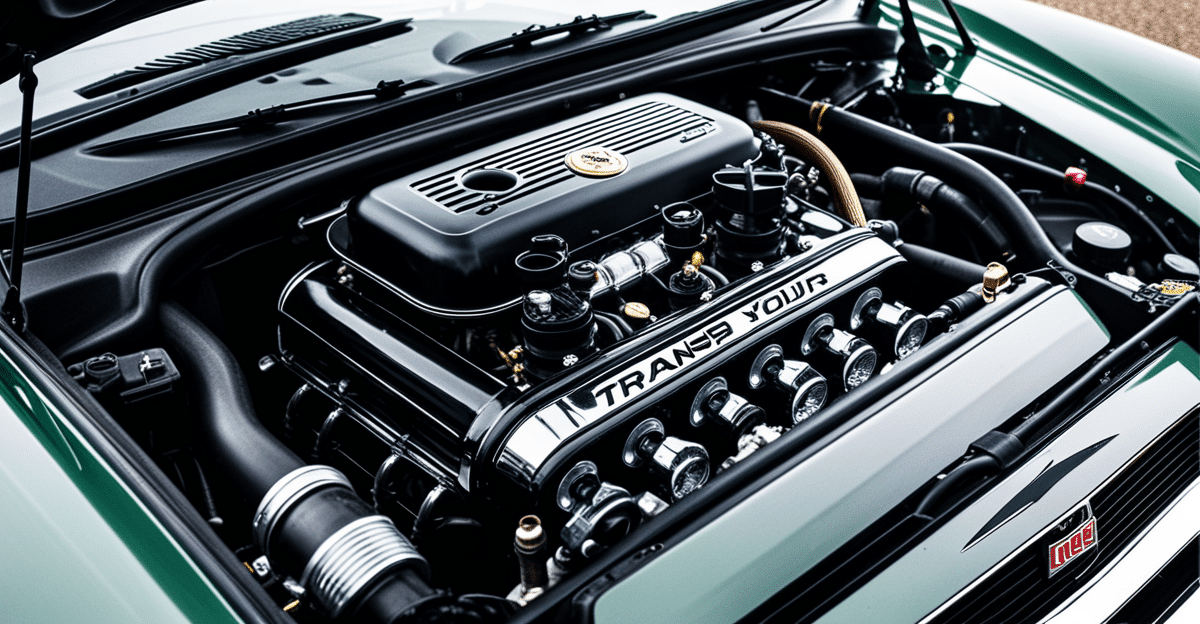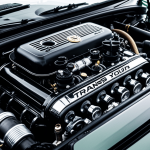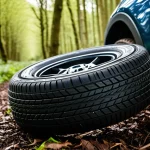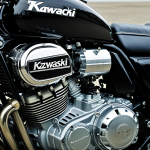Essential Fuel System Upgrades for Classic UK Cars
Upgrading the fuel system is vital for enhancing classic car performance. Key components to focus on include the carburetor, fuel pump, and fuel lines. Many enthusiasts opt for a carburetor to fuel injection conversion, as this modification can significantly improve fuel delivery accuracy and engine responsiveness.
Performance fuel pumps are another critical upgrade. A modern, high-performance fuel pump ensures consistent fuel pressure, which supports better combustion and power output. Likewise, replacing original fuel lines with durable, often braided alternatives enhances flow and reduces the risk of leaks or blockages.
Have you seen this : Mastering Calmness: Essential Tips to Tackle Road Rage and Promote Safety on UK Motorways
These fuel system modifications not only boost engine efficiency but also improve reliability and safety. Upgrading to fuel injection provides better cold starts and fuel economy, while reinforced fuel lines and pumps reduce maintenance issues. When considering classic car fuel system upgrades, prioritising these components can dramatically transform your vehicle’s drivability and longevity, making them essential for any performance upgrade plan.
Comparing Carburetors and Fuel Injection for Classic Cars
When weighing carburetor vs fuel injection for classic car fuel conversion, fuel injection offers clear advantages. Fuel injection systems deliver precise amounts of fuel directly into the engine, improving responsiveness and efficiency compared to carburetors, which rely on mechanical means to mix fuel and air. This precision leads to better throttle control and smoother engine operation.
Also to read : Maximize Your Vehicle’s Towing Capability: The Definitive Guide to UK Towing Regulations
Typical performance improvements after an injection upgrade include enhanced fuel economy, more consistent power output, and easier cold starts. Fuel injection reduces fuel wastage by adjusting fuel delivery to engine conditions, avoiding the rough idling and choking often associated with carburetors in classic cars. Reliability also improves because fuel injection systems automatically compensate for altitude and temperature changes, minimizing manual tuning needs.
Upgrading classic car fuel systems from carburetors to injection requires careful planning and parts compatibility checks. Although initial setup can be complex, many owners report long-term benefits such as fewer maintenance hassles and improved drivability. In summary, a classic car fuel conversion to injection not only boosts performance but enhances overall engine reliability, making it a popular choice for enthusiasts seeking both power and convenience.
Step-by-Step Guide to Upgrading a Classic Car Fuel System
Upgrading a classic car’s fuel system starts with thorough planning. A successful fuel system upgrade guide emphasizes compatibility between the new components and the existing engine setup. Begin by assessing the current carburetor, fuel pump, and lines to identify suitable replacements. For a classic car DIY project, prepare your workspace with proper safety measures including ventilation and fire safety equipment.
The initial technical step in a carburetor-to-injection conversion involves removing the carburetor and fitting the fuel injection manifold or throttle bodies. Installing a modern performance fuel pump is essential to maintain steady fuel pressure. Next, replace old fuel lines with braided variants to handle increased pressure and avoid leaks. Wiring sensors and ECU calibration follow, requiring precision to ensure the injection system communicates effectively with the engine.
Throughout installation, monitor for fuel leaks and electrical issues. Troubleshooting should focus on fuel delivery inconsistencies or error codes in the ECU. Using clear diagnostic steps accelerates problem-solving. Remember, proper tuning after assembly maximises the benefits of your fuel system modifications. By following this step-by-step approach, you ensure a safe, effective upgrade enhancing both performance and reliability.
Essential Fuel System Upgrades for Classic UK Cars
Upgrading classic car fuel system upgrades begins with targeting components most influential to performance. The carburetor to fuel injection conversion stands out as the single most impactful upgrade. Fuel injection delivers fuel more precisely than carburetors, which rely on mechanical mixing. This precision enhances throttle response, fuel economy, and cold-start reliability, making it a top choice for many seeking performance upgrades.
Next, installing high-performance fuel pumps ensures consistent fuel pressure crucial for smooth engine operation and improved power output. Classic fuel pumps often cannot maintain the demand of modernised systems, making upgrades vital for performance and reliability.
Replacing original fuel lines with braided fuel lines or other high-quality materials adds durability and safety. These lines better resist wear, heat, and fuel permeation that can cause failures in older rubber hoses. Upgraded lines help maintain steady fuel flow, supporting the higher pressures required by fuel injection systems.
In summary, focusing on a combination of carburetor replacement, enhanced fuel pumps, and durable fuel lines forms the foundation for effective fuel system modifications that transform classic UK vehicles with lasting performance benefits.
Essential Fuel System Upgrades for Classic UK Cars
Classic car fuel system upgrades primarily focus on three critical components: the carburetor-to-fuel injection conversion, performance fuel pumps, and fuel lines. Among these, the carburetor to fuel injection conversion is the most transformative. This modification replaces the older mechanical fuel mixing with precise electronic fuel delivery, substantially improving throttle response, fuel efficiency, and engine reliability.
Upgrading to high-performance fuel pumps ensures consistent fuel pressure that classic systems cannot always maintain. These pumps support modern fuel delivery demands, preventing fuel starvation during acceleration and contributing to smoother power output. Quality pumps also extend durability, reducing maintenance frequency.
Replacing original fuel lines with braided fuel lines or similarly robust materials aids in handling higher pressures and resistances found in updated systems. These upgraded lines provide increased safety by preventing leaks and degradation due to heat and fuel composition.
Together, these targeted fuel system modifications constitute effective performance upgrades tailor-made for classic UK cars. Addressing these areas ensures improved power delivery, better economy, and enhanced overall drivability without compromising authenticity or reliability.
High-Performance Fuel Pumps, Filters, and Fuel Lines
Classic car fuel system upgrades rely heavily on choosing the right high-performance fuel pumps, filters, and fuel lines to ensure optimal engine operation. A high-performance fuel pump supplies consistent pressure, critical to supporting enhanced fuel delivery from fuel injection systems. These pumps are typically electric and designed to handle higher flow rates than original mechanical units, reducing fuel starvation and improving throttle response.
Fuel filters serve the vital role of protecting the engine by removing contaminants from the fuel. Upgrading to modern filters with finer mesh or multi-stage filtration helps maintain clean fuel flow, essential for the longevity of injectors and pumps. Choosing filters compatible with classic UK cars prevents fitment issues and ensures reliable operation.
Replacing original fuel lines with braided fuel lines or advanced synthetic materials is another key modification. Braided lines better resist abrasion, heat, and pressure changes common in performance setups. They also offer improved safety by reducing the risk of leaks caused by old or degraded rubber hoses. Installation should prioritize correct routing to avoid abrasion points and accommodate engine movement.
Together, these fuel system modifications form the backbone of successful performance upgrades, supporting precise fuel delivery, enhanced reliability, and safer operation in classic UK vehicles.
Essential Fuel System Upgrades for Classic UK Cars
Upgrading classic car fuel system upgrades centers on three main components that collectively transform performance: the carburetor to fuel injection conversion, upgraded fuel pumps, and fuel lines.
The most impactful fuel system modification is converting from carburetors to fuel injection. This change replaces mechanical fuel-air mixing with precise electronic delivery, enhancing throttle response, fuel efficiency, and cold-start reliability. Fuel injection adjusts fuel delivery adaptively, reducing waste and improving drivability under varied conditions.
Next, installing performance fuel pumps is essential. Classic pumps often cannot sustain the pressures required by modernised injection systems. Upgraded pumps provide steady, high flow rates, preventing fuel starvation during acceleration and contributing to smoother, more consistent power output.
Replacing aged fuel lines with braided fuel lines offers increased safety and durability. These lines withstand higher pressures and resist heat and abrasion better than original rubber hoses, which can degrade and leak. Upgraded fuel lines ensure a reliable, leak-free fuel supply, integral to maintaining consistent system performance.
Together, these fuel system modifications form a comprehensive upgrade path for classic UK cars, balancing authenticity with modern efficiency and reliability.









